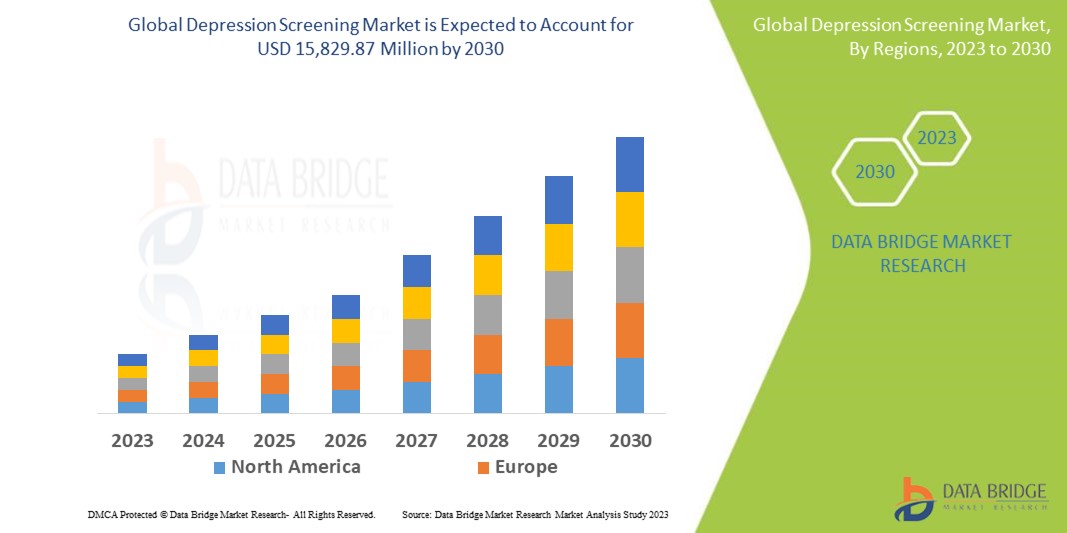Psychiatric syndromes, also referred to as mental health disorders or mental illnesses, are a wide range of conditions that affect a person's thoughts, emotions, behavior, and overall mental well-being. These syndromes are typically diagnosed based on specific sets of symptoms and criteria outlined in diagnostic manuals like the Diagnostic and Statistical Manual of Mental Disorders (DSM-5) or the International Classification of Diseases (ICD-10 and ICD-11).
-
Manic Syndrome
-
Generalized Anxiety Syndrome
-
Obsessive-Compulsive Syndrome
-
Panic Syndrome
-
Post-Traumatic Stress Syndrome (PTSD)
Clinical depression, also known as Major Depressive Disorder (MDD), is a serious and common mental health condition characterized by persistent and intense feelings of sadness, hopelessness, and a lack of interest or pleasure in activities. It goes beyond the usual feelings of sadness or occasional "down" periods that everyone experiences in life. Clinical depression can significantly affect a person's daily life, including their ability to work, study, eat, sleep, and enjoy life.
-
Psychomotor Changes
-
Autism Spectrum Disorder (ASD)
-
Borderline Personality Syndrome
Obsessive-Compulsive Disorder (OCD) is a mental health condition characterized by the presence of obsessions and compulsions. It's a chronic condition that affects a person's thoughts and behavior, often leading to distress and impairment in daily life.
-
Obsessions
-
Compulsions
-
Cognitive-Behavioral Therapy (CBT)
-
Combination Therapy
"Behavioral depressions" is not a recognized or standard term in the field of psychology or psychiatry. It's possible that you may be referring to a particular aspect of depression or specific behaviors associated with depression. However, depression itself is primarily characterized by emotional and cognitive symptoms, not just behavioral ones.
-
Procrastination and Reduced Productivity
-
Self-Isolation and Self-Neglect
-
Self-Harming Behaviors
Bipolar depression, also known as bipolar depressive disorder or bipolar II disorder, is a subtype of bipolar disorder. Bipolar disorder is characterized by extreme mood swings, including periods of intense euphoria (mania or hypomania) and episodes of severe depression. Bipolar depression specifically refers to the depressive episodes that individuals with bipolar disorder experience
-
Differential Diagnosis
-
Impact on Functioning
Stress management is a set of techniques and strategies designed to help individuals effectively cope with and reduce the negative effects of stress in their lives. Stress is a natural response to challenging situations, but chronic or excessive stress can have detrimental effects on both physical and mental health.
-
Identify Stressors
-
Mindset Shift
The neurobiology of depression is a complex and ongoing area of research. Depression is thought to involve alterations in brain structure, function, and neurotransmitter activity
-
Neurotransmitters
-
Brain Structure
-
Neuroinflammation
-
Neuroendocrine System
Psychotic depression, also known as major depressive disorder with psychotic features, is a subtype of clinical depression characterized by the presence of psychotic symptoms alongside the typical symptoms of major depression. These psychotic symptoms can include hallucinations (false sensory perceptions) and delusions (false beliefs).
-
Hallucinations
-
Delusions
-
Severe Depressive Symptoms
"Subsyndromal depression" is a term used to describe a condition in which an individual experiences some symptoms of depression but does not meet the full criteria for a Major Depressive Disorder (MDD). This condition is sometimes referred to as "subthreshold depression" or "minor depression." It's a significant clinical concern because it can still cause distress and impair functioning, even if it doesn't meet the full criteria for a diagnosis of MDD.
-
Antidepressant Medication
-
Electroconvulsive Therapy (ECT)
-
Psychotherapy
Disruptive Mood Dysregulation Disorder (DMDD) is a relatively new mental health diagnosis introduced in the Diagnostic and Statistical Manual of Mental Disorders, Fifth Edition (DSM-5). It is primarily diagnosed in children and adolescents who experience severe temper outbursts and mood instability that is disproportionate to their age and developmental level.
-
Severe Mood Outbursts
-
Chronic Irritability
-
Onset in Childhood or Adolescence
-
Differential Diagnosis
Geriatric depression, also known as late-life depression or geriatric major depressive disorder, refers to the occurrence of depression in older adults, typically aged 65 and older. Depression in older adults presents unique challenges due to factors such as physical health issues, loss of loved ones, and changes in social and economic circumstances.
-
Prevalence
-
Chronic Irritability
"Resistant depression," also known as treatment-resistant depression (TRD), refers to a type of depression that does not respond adequately to standard treatments for depression. Standard treatments often include psychotherapy (such as cognitive-behavioral therapy) and various antidepressant medications. When depression persists despite these treatments, it is considered treatment-resistant.
-
Psychotherapy
-
Seasonal Affective Disorder (SAD)
Suicide prevention is a critical public health initiative aimed at reducing the risk of suicide and providing support to individuals who may be at risk. Suicide is a serious and preventable tragedy, and various strategies and resources are available to help prevent it.
-
Psychotic Depression
-
Melancholic Depression
-
Psychotic Depression
Mental health rehabilitation is a holistic and recovery-oriented approach to helping individuals with mental health conditions regain their functional, social, and emotional well-being. It focuses on improving the quality of life, enhancing independence, and promoting recovery in individuals who may have experienced severe mental health challenges
Major Depressive Disorder (MDD), commonly referred to as clinical depression, is a mental health condition characterized by persistent and severe feelings of sadness, hopelessness, and a lack of interest or pleasure in activities. It is one of the most prevalent mental health disorders and can significantly impact a person's daily life.
Persistent Depressive Disorder (PDD), also known as Dysthymia, is a chronic form of depression characterized by a persistent and long-lasting low mood and a lack of interest or pleasure in daily activities. Unlike Major Depressive Disorder (MDD), which is characterized by more severe but episodic symptoms, PDD involves a milder but enduring form of depression.
-
Psychotherapy
-
Supportive Interventions
Seasonal Affective Disorder (SAD), sometimes referred to as seasonal depression, is a subtype of depression characterized by recurrent episodes of depressive symptoms that occur at specific times of the year, typically during the fall and winter months when there is less natural sunlight. SAD is believed to be related to changes in daylight and can be a challenging condition for those affected.
Postpartum Depression (PPD) is a form of clinical depression that affects some individuals after childbirth. It can occur within weeks or months of giving birth and is characterized by a range of emotional, physical, and behavioral symptoms. PPD is a serious and treatable condition, and understanding its key aspects is essential for early recognition and support.
Situational or Reactive Depression, also known as Adjustment Disorder with Depressed Mood, is a type of mood disorder characterized by a temporary and typically time-limited period of emotional distress, sadness, and other depressive symptoms that occur in response to a specific life stressor or difficult life event. This form of depression is considered a normal response to challenging circumstances and is distinguishable from major depressive disorder (MDD) or other clinical forms of depression.
-
Adjustement Disorder
-
Depressive disorder
The Treatment- Resistant Depression market is projected to register a CAGR of 4% during the forecast period.
During COVID-19, the mental state of the individuals was greatly affected, and consequently, most of the persons were suffering from different psychiatric and neuropsychiatric disorders. As per the study published in October 2020, titled 'The Impact of the COVID-19 Pandemic on the Health and Coping Behaviors of Patients With Treatment-Resistant Depression' the COVID-19 pandemic has affected the health of patients with TRD in both positive and negative ways. As the goal of government preventive strategies is to protect and promote public health, regular attention should be paid to the negative effects of long-term exposure to pandemic-related news on this vulnerable population. Therefore, COVID-19 has provided the opportunity for market players for innovative and effective treatment procedures to address the global burden of such increasing anxiety disorders, thereby it is expected to impact the market positively.
The market is majorly driven by rising cases of depression, increasing awareness about depression, and the emergence of novel drugs. According to the World Health Organization (WHO), data updated in June 2021, more than 700,000 people suicide every year, and it is the fourth leading cause of death among 15-19-year-olds. Similarly, In countries such as the United Kingdom in the United States, which are characterized by their fast-paced economies, the percentage of the affected population of every age is quite high. According to the Anxiety and Depression Foundation facts and statistics updated in June 2022, generalized anxiety disorder will affect 6.8 million adults or 3.1% of the United States population per year. Thus, the rising cases of depression across the world are expected to drive the overall growth of the market studied over the forecast period.
Moreover, the manufacturer's interest in developing new medication the United States Food and Drug Administration (USFDA) approval is triggering the growth of the market. For instance, in July 2022, Abbott received the United States Food and Drug Administration’s approval to use its deep brain stimulators (DBS) device for treatment-resistant depression (TRD). Moreover, in March 2019, the FDA approved Spravato-non-competitive N-methyl D-aspartate (NMDA) receptor antagonist, in conjunction with an oral antidepressant, for the TRD treatment in adults. It is the first-ever approved NMDA therapy for TRD.
However, severe high costs and a rise in adverse drug reactions significantly hinder the market's growth.


Related Societies
Middle East:
-
Affective Disorder Clinic of Isfahan, Iran
-
Hafez Psychiatry Clinic
-
Imam Hussein Medical Centre
-
Institute of Psychiatry, Tehran, Iran
-
Roozbeh Psychiatric Hospital
-
Samenolhojaj Charity Support Group for Mental Illnesses
-
South African Depression and Anxiety Group (SADAG)
-
Taqabal Kuwait
-
United Colours of Bipolar
-
We yak Qatar
USA:
-
American Academy of Neurology
-
Movement Disorders Society
-
Parkinson Society Canada
-
The International Parkinson and Movement Disorder Society
-
Canadian Movement Disorders Group
-
Bachmann-Strauss Dystonia and Parkinson Foundation
-
Parkinson’s Action Network, American Society of neuron rehabilitation
-
Canadian Stroke Consortium
-
Association of Counselling Psychologists
-
American Psychological Association
-
Association for Psychological Science
-
Brain and Spine Foundation
-
American Neuropsychiatric Association
-
Association of Psychology and Psychiatry for Adults and Children
-
Alzheimer’s Association
-
American Academy of Sleep Medicine
-
American Parkinson’s Disease Association
-
Parkinson’s Disease Foundation
-
Stroke Association
-
American Association of Neurological Surgeons
-
American Society for Stereotactic and Functional Neurosurgery
-
Neuropathy Association & Nevus Outreach
-
Brain Aneurysm Foundation and Brain Injury Association of America
-
Brain Injury Resource Centre & Brain Trauma Foundation
Europe:
-
European Psychiatric Association
-
Federation of European Neuroscience Societies
-
European Sleep Research Society
-
Society for Neuroscience
-
British Neuroscience Association
-
Belgian Society for Neuroscience
-
Brain Research Society of Finland
-
Croatian Society for Neuroscience
-
Danish Society for Neuroscience
-
Dutch Neuron-federation
-
Georgian Neuroscience Association
-
Spanish Psychological Association
-
Swedish Psychological Association
-
Bulgarian Society of Neurology
-
Spanish Society of Neurology
-
British Psychological Association
-
European Huntington Association
-
European Neurological Societies
-
UK Parkinson’s Action Network
-
European Neurological Society
-
European Parkinson’s Disease Association
-
Danish Movement Disorder Society
-
Italian Society for the study of Parkinson Disease
Asia-Pacific:
-
Psychiatrists of Association of Nepal
-
Philippine Psychiatric Association Portuguese
-
Romanian Psychiatric Association
-
Russian Society of Psychiatrists
-
Neurological Society of India
-
Movement Disorder Society of Australia








